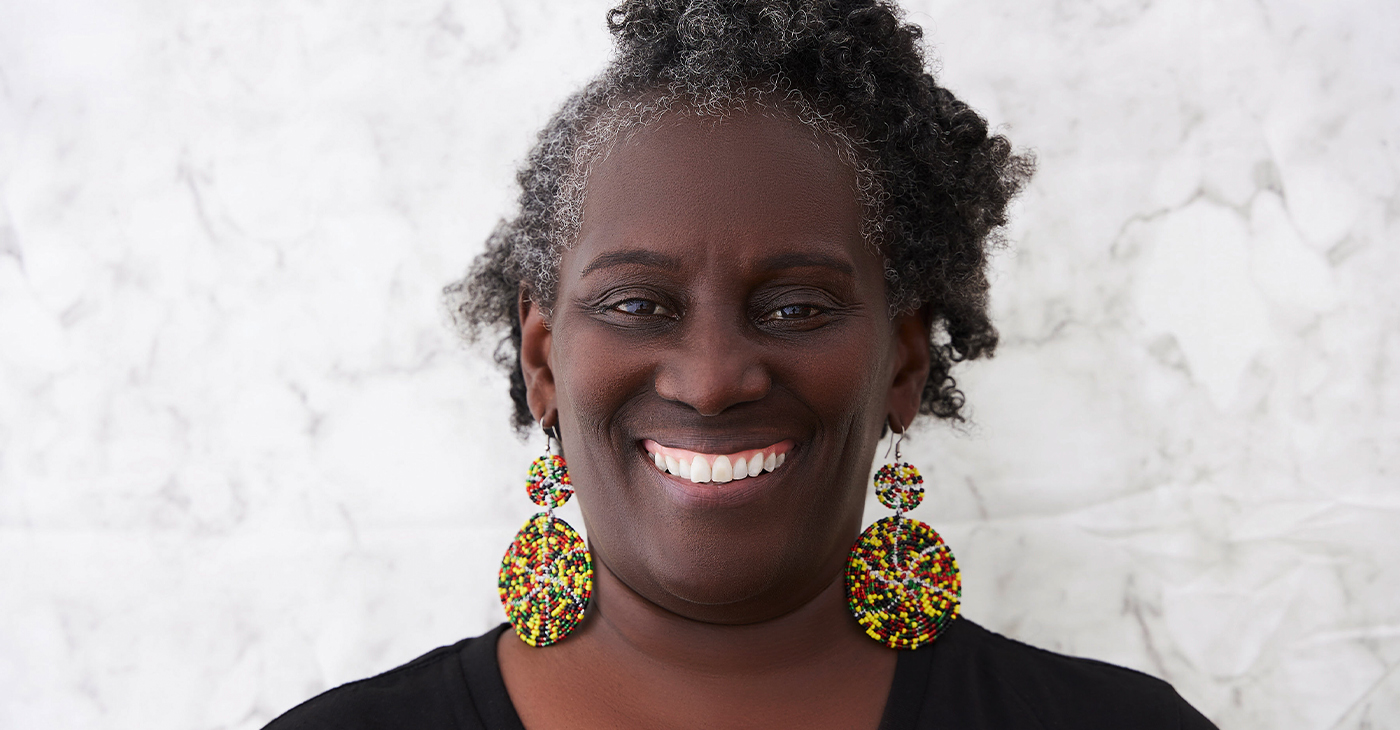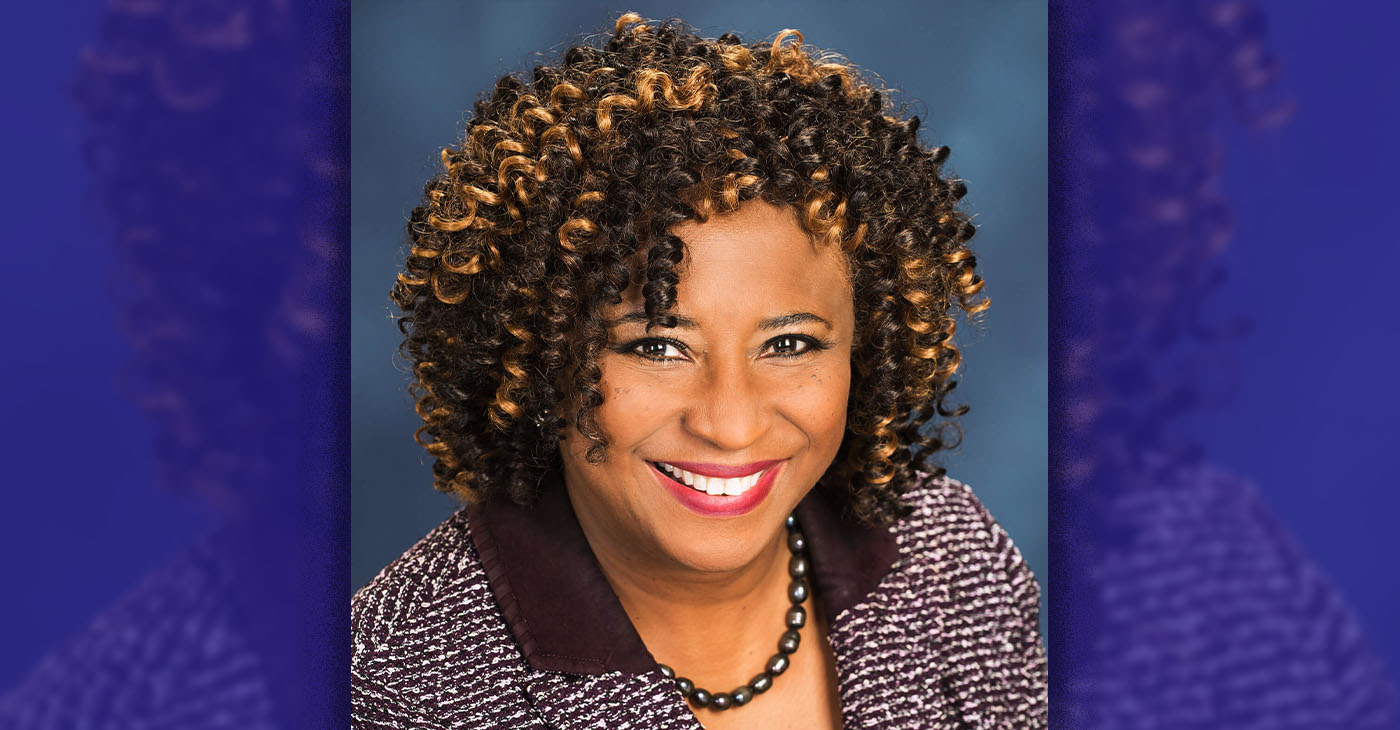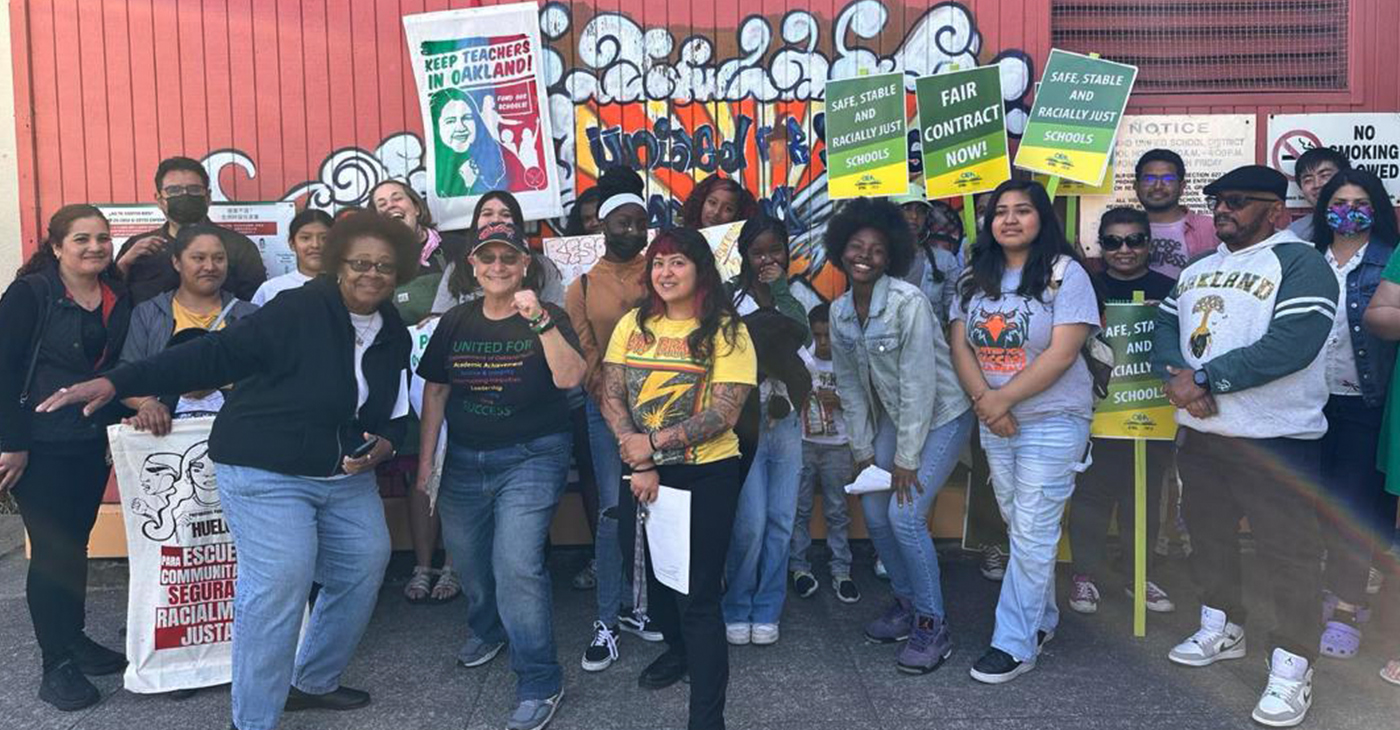Uncategorized
Oakland Mayoral Candidates Talk Army Base Jobs
Oakland is the midst of a hot mayoral campaign season, and the city is beginning to see unemployment and jobs as top issue for candidates, along with public safety and affordable housing.
This week, the Post asked a number of the candidates what their stance is on the $1.2 billion Oakland Global Army Base project’s s promise of thousands of jobs for city residents.
< p>The candidates were asked if they believe results so far of the Oakland Global project are transparent to public oversight and if equal opportunity to jobs is available to all Oakland residents?
If they became mayor, how would they ensure that major development projects that utilize public funds and public land deliver on promises to local and minority residents?
Master developer Phil Tagami of California Capital & Investment Group (CCIG) has played dual roles as the city’s agent on the project. Until recently, transparency on the project has been stifled amid concerns that local, minority residents are not getting jobs on the project.
Mayor Jean Quan and Joe Tuman did not return the Oakland Post’s requests for an interview for this article.
Civil rights attorney Dan Siegel said he strongly “disagrees with the model for the Oakland Army Base development where the master developer has so much control over the project. That concentration of authority explains the inadequate efforts to hire local residents.”
The city needs “complete transparency and strict, impartial oversight over city development projects,” said Siegel.
Siegel says his highest priority as mayor would be “creating good paying jobs for Oakland residents…and require a developer such as Tagami to pay for the recruitment and training of workers to fill the jobs at the Oakland Army Base.”
Councilmember and mayoral candidate Libby Schaaf expressed her concerns.
“This half-billion dollar project should be creating thousands of jobs. It’s frustrating to see the
slow hiring process and the slow hiring of Oaklanders,” she said.
However, she says, the horizontal infrastructure development is slow work that will not employ so many people, but later there will be vertical development of warehouses and business that will do better. “I am very optimistic that the vertical construction will indeed hire thousands more!” she said.
Promoting the hiring of ex-offenders, Schaaf says Oakland should “look at hiring Oaklanders first, hiring ex-offenders and taking care of our own,” adding that the also the city must also to ensure that local, minority firms have a fair chance at winning contracts in the city.
“We need to work with a variety of firms to ensure we get great projects, like the Army Base,” she said. “There are far too many locally grown firms already here that we should be using.”
Deeply involved in the port’s side of the Army Base project, Port Commissioner Bryan Parker says the project is in “the first inning of a nine inning ballgame,” referring to the five-year construction phase of the project and the horizontal development that the vertical construction that will come afterward.
“I want to see more African American jobs created – as an underrepresented group, that is fair,”
Parker said. “However, we must also recognize Oakland’s overall diversity and also make sure all races, ages, and sexual preferences are addressed in our jobs plans.”
He said that the 425 jobs created – half of which have gone to Oakland residents – is “fairly significant.” A city consultant has projected 1,523 construction jobs for the first phase of the project, he said.
“As mayor, I am going to insist that any developer who develops in Oakland receives all the benefits Oakland has to offer, but in exchange, invests in our economy including vital safety services,” Parker said, emphasizing his support for re-entry residents.
“Investing in our re-entry residents is a step at making a safer Oakland,” he continued.
Councilmember Rebecca Kaplan says she is backing her support for local boy by ensuring that the city addresses “the disparity in city contracting between large corporations and local, minority-owned firms.”
City administration “needs to do a better job when it comes to enforcing the local hire rules in place” at the Army Base Project, she said.
As mayor, Kaplan says she won’t “just promise local jobs and do a ribbon cutting but make sure we’re actually creating the jobs.”
“Oakland is the best city in the Bay Area, but it has the worst city government,” said City Auditor Courtney Ruby. “A big part of the problem is a failure in leadership that has squandered opportunities by bouncing from crisis to crisis, always looking for a political solution, instead of implementing sound decisions by focusing on results.”
“The only way we can rebuild trust in local government is to focus on transparency and results,” Ruby said.
Arts and Culture
Rise East Project: Part 3
Between 1990 and 2020, Oakland lost nearly half of its Black population due to economic and social forces. East Oakland, once a middle-class community, is now home to mostly Black families living in poverty.

The Black Cultural Zone’s Pivotal Role in Rebuilding Oakland’s Black Community
By Tanya Dennis
Between 1990 and 2020, Oakland lost nearly half of its Black population due to economic and social forces. East Oakland, once a middle-class community, is now home to mostly Black families living in poverty.
In 2021, 314 Oakland residents died from COVID-19. More than 100 of them, or about 33.8%, were Black, a high rate of death as Blacks constitute only 22.8% of Oakland’s population.
This troubling fact did not go unnoticed by City and County agencies, and the public-at-large, ultimately leading to the development of several community organizations determined to combat what many deemed an existential threat to Oakland’s African American residents.
Eastside Arts Alliance had already proposed that a Black Cultural Zone be established in Deep East Oakland in 2010, but 2020’s COVID-19 pandemic galvanized the community.
Demanding Black legacy preservation, the Black Cultural Zone (BCZ) called for East Oakland to be made an “unapologetically Black” business, commercial, economic development community.
Established initially as a welcoming space for Black art and culture, BCZ emerged into a a community development collective, and acquired the Eastmont police substation in Eastmont Town Center from the City of Oakland in 2020.
Once there, BCZ immediately began combating the COVID-19 pandemic with drive-thru PPE distribution and food giveaways. BCZ’s Akoma Market program allowed businesses to sell their products and wares safely in a COVID-compliant space during the COVID-19 shutdown.
Currently, Akoma Market is operated twice a month at 73rd and Foothill Boulevard and Akoma vendors ‘pop up’ throughout the state at festivals and community-centered events like health fairs.
“Before BCZ existed, East Oakland was a very depressing place to live,” said Ari Curry, BCZ’s chief experience officer and a resident of East Oakland. “There was a sense of hopelessness and not being seen. BCZ allows us to be seen by bringing in the best of our culture and positive change into some of our most depressed areas.”
The culture zone innovates, incubates, informs, and elevates the Black community and centers it in arts and culture, Curry went on.
“With the mission to center ourselves unapologetically in arts, culture, and economics, BCZ allows us to design, resource, and build on collective power within our community for transformation,” Curry concluded.
As a part of Oakland Thrives, another community collective, BCZ began working to secure $100 million to develop a ‘40 by 40’ block area that runs from Seminary Avenue to the Oakland-San Leandro border and from MacArthur Boulevard to the Bay.
The project would come to be known as Rise East.
Carolyn Johnson, CEO of BCZ says, “Our mission is to build a vibrant legacy where we thrive economically, anchored in Black art and commerce. The power to do this is being realized with the Rise East Project.
“With collective power, we are pushing for good health and self-determination, which is true freedom,” Johnson says. “BCZ’s purpose is to innovate, to change something already established; to incubate, optimizing growth and development, and boost businesses’ economic growth with our programs; we inform as we serve as a trusted source of information for resources to help people; and most important, we elevate, promoting and boosting Black folks up higher with the services we deliver with excellence.
“Rise East powers our work in economics, Black health, education, and power building. Rise East is the way to get people to focus on what BCZ has been doing. The funding for the 40 by 40 Rise East project is funding the Black Culture Zone,” Johnson said.
Alameda County
Help Protect D.A. Pamela Price’s Victory
Alameda County District Attorney Pamela Price is asking supporters of the justice reform agenda that led her to victory last November to come to a Town Hall on public safety at Montclair Presbyterian Church on July 27.

By Post Staff
Alameda County District Attorney Pamela Price is asking supporters of the justice reform agenda that led her to victory last November to come to a Town Hall on public safety at Montclair Presbyterian Church on July 27.
Price is facing a possible recall election just six months into her term by civic and business interests, some of whom will be at the in-person meeting from 6:00-9:00 p.m. at 5701 Thornhill Dr. in Oakland.
“We know that opponents of criminal justice reform plan to attend this meeting and use it as a forum against the policies that Alameda County voters mandated DA Price to deliver. We cannot let them succeed,” her campaign team’s email appeal said.
“That’s why I’m asking you to join us at the town hall,” the email continued. “We need to show up in force and make sure that our voices are heard.”
Price’s campaign is also seeking donations to fight the effort to have her recalled.
Her history-making election as the first African American woman to hold the office had been a surprise to insiders who had expected that Terry Wiley, who served as assistant district attorney under outgoing D.A. Nancy O’Malley, would win.
Price campaigned as a progressive, making it clear to voters that she wanted to curb both pretrial detention and life-without-parole sentences among other things. She won, taking 53% of the vote.
Almost immediately, Price was challenged by some media outlets as well as business and civic groups who alleged, as she began to fulfill those campaign promises, that she was soft on crime.
On July 11, the recall committee called Save Alameda for Everyone (S.A.F.E.) filed paperwork with the county elections office to begin raising money for the next step toward Price’s ouster: gathering signatures of at least 10% of the electorate.
S.A.F.E. has its work cut out for them, but Price needs to be prepared to fight them to keep her office.
In a separate sponsored letter to voters, Price supporters wrote:
“We know that you supported DA Price because you believe in her vision for a more just and equitable Alameda County. We hope you share our belief that our criminal justice system has to be fair to everyone, regardless of their race, gender, ethnicity, religion, or socioeconomic status.
“The Republican-endorsed effort is a blatant attempt to overturn the will of the voters and a waste of time and money. It is an attempt to silence the voices of those who want real justice. We cannot let these election deniers succeed.
“Will you make a donation today to help us protect the win?
“Please watch this video and share it with your friends and family. We need to stand up to the sore losers and protect the win. Together, we can continue to make Alameda County a more just, safe and equitable place for everyone.”
For more information, go to the website: pamelaprice4da.com
or send an e-mail to info@pamelaprice4da.com
Bay Area
Oakland Teachers Walk Out
After negotiating late into the night and months of fruitless bargaining with the Oakland Unified School District, Oakland teachers went out on strike Thursday morning. “Our (50-member) bargaining team has been working for seven months working, making meaningful proposals that will strengthen our schools for our students,” said Oakland Education Association (OEA) Interim President Ismael “Ish” Armendariz, speaking at press conference Monday afternoon.

OEA calls unfair labor practices strike after 7 months of negotiations.
By Ken Epstein
After negotiating late into the night and months of fruitless bargaining with the Oakland Unified School District, Oakland teachers went out on strike Thursday morning.
“Our (50-member) bargaining team has been working for seven months working, making meaningful proposals that will strengthen our schools for our students,” said Oakland Education Association (OEA) Interim President Ismael “Ish” Armendariz, speaking at press conference Monday afternoon.
“OUSD has repeatedly canceled bargaining sessions, has failed to offer meaningful proposals or counterproposals at a majority of the bargaining sessions and has repeatedly failed to discuss certain items,” Armendariz said.
“The days (of bargaining) have been long, and after hours of waiting, the superintendent finally showed up on Sunday night at 11:00 p.m.to meet with our team (for the first time),” he said. “(But) the district continues to come to the table unprepared, and this is unacceptable.”
“This is illegal, and OEA has filed an Unfair Labor Practice charge with the state Public Employment Relations Board (PERB). Under California law, OEA has a right to strike over unfair labor practices,” he said.
OEA represents 3,000 teachers, counselors, psychologists, speech pathologists, early childhood educators, nurses, adult education instructors and substitute teachers, serving 35,000 Oakland public school students. Other labor groups representing school employees include SEIU 1021 and construction unions.
In a press statement released on Tuesday, OUSD said it has been trying to avert a strike.
“The district will remain ready to meet with the teachers’ union at any time and looks forward to continuing our efforts to reach an agreement with OEA … We will continue to do everything possible to avoid a work stoppage.”
“Our children’s education does not need to be interrupted by negotiations with our union, especially given the major offer the District made on Monday,” other district press statements said. “We are committed to continuing to work with our labor leaders to discuss their salaries and support services for our students without the need for a strike.”
OUSD’s latest salary proposal, released this week, includes a 10% raise retroactive to Nov. 1, 2022, and a $5,000, one-time payment to all members.
OEA’s recent salary proposal asked for a 10% retroactive raise to all members, a one-time $10,000 payment to members who return for the 2023-2024 school year, and increases from $7,500 to $10,000 to salaries, based on years of experience.
In addition to pay demands, OEA is making “common good” proposals that serve families and the community, including protecting and enhancing special education programs, putting the brakes on closing schools in flatland neighborhoods, shared school leadership, safety, and support for students.
-

 Activism4 weeks ago
Activism4 weeks agoOakland Post: Week of March 27 – April 2, 2024
-

 #NNPA BlackPress4 weeks ago
#NNPA BlackPress4 weeks agoFrom Raids to Revelations: The Dark Turn in Sean ‘Diddy’ Combs’ Saga
-

 #NNPA BlackPress4 weeks ago
#NNPA BlackPress4 weeks agoCOMMENTARY: D.C. Crime Bill Fails to Address Root Causes of Violence and Incarceration
-

 #NNPA BlackPress4 weeks ago
#NNPA BlackPress4 weeks agoCOMMENTARY: Lady Day and The Lights!
-

 #NNPA BlackPress4 weeks ago
#NNPA BlackPress4 weeks agoMayor, City Council President React to May 31 Closing of Birmingham-Southern College
-

 #NNPA BlackPress4 weeks ago
#NNPA BlackPress4 weeks agoBaltimore Key Bridge Catastrophe: A City’s Heartbreak and a Nation’s Alarm
-

 #NNPA BlackPress4 weeks ago
#NNPA BlackPress4 weeks agoBaltimore’s Key Bridge Struck by Ship, Collapses into Water
-

 #NNPA BlackPress4 weeks ago
#NNPA BlackPress4 weeks agoBeloved Actor and Activist Louis Cameron Gossett Jr. Dies at 87
























































